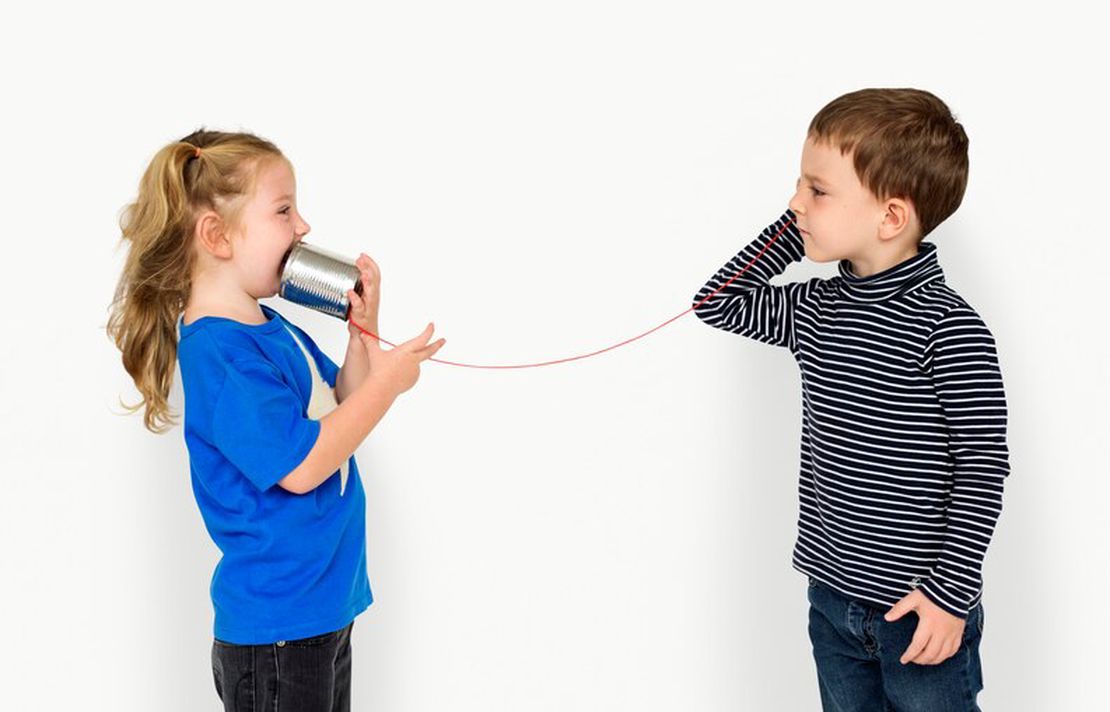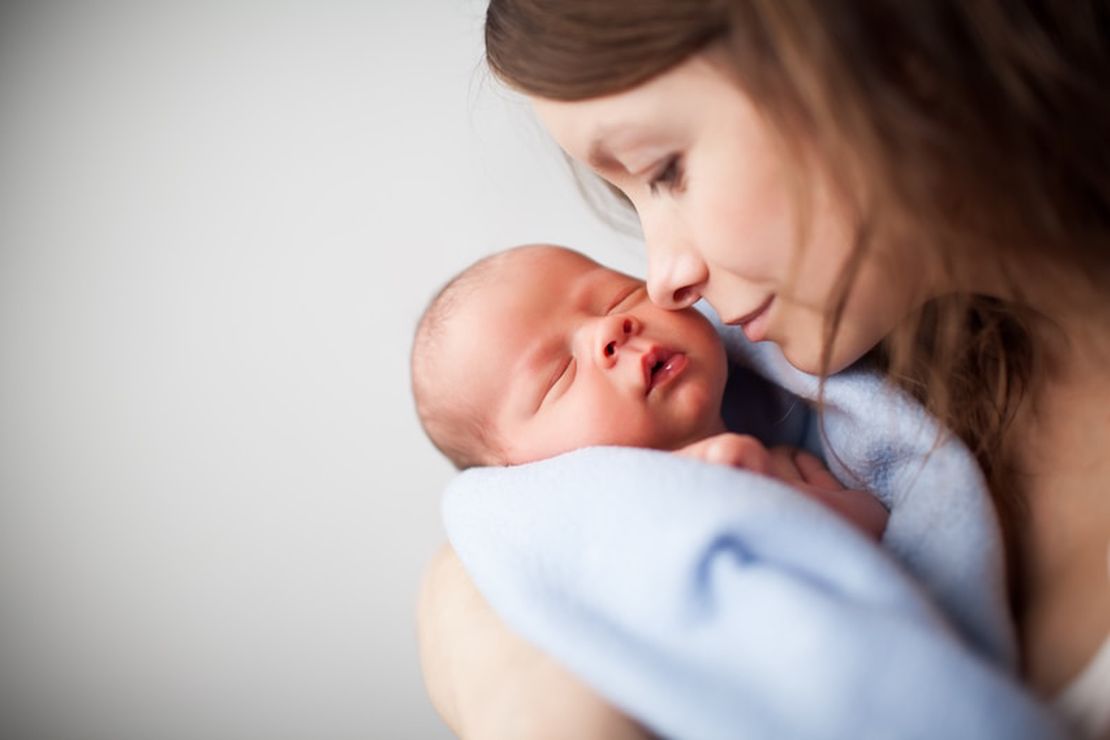Stages of Speech and Language Development
Every baby that opens its eyes to life needs communication by nature. Language development goes through many stages in the process of acquiring the use of verbal expressions for communication.
In the first weeks of life, when no sound production has yet been observed, babies express their basic needs such as hunger, lack of sleep or dirty diapers by developing different cries and expect their mother/father to understand this communication.
In the first month of life, babies begin to produce these cries as well as sounds that indicate contentment. As the baby grows, the range of sounds it produces expands as its head and neck anatomy changes, and it begins to produce sounds closer to speech sounds.
Between 2-5 months the baby starts to make ‘aa,ou’ sounds which we call cooing/comfort sounds. From the 6th month onwards, we see that the process of vocal play begins and babies start to use single syllables (ah,ba,ma).
It is observed that babies turn these monosyllabic expressions into games by using them repetitively by themselves. This period can actually be characterized as the period when voice imitations begin. It is known that reinforcing and modeling the child’s productions during this process contributes to the progress of speech development.
In the first year of life, by the end of the 12th month, meaningful word production has been acquired, but until the 18th month, children generally focus on monosyllabic expressions. The use of ‘ka’ instead of ‘pen’ and ‘ba’ instead of ‘car’ can be given as examples.
The child’s vocabulary expands from the 18th month onwards, which we characterize as the word explosion and from which we expect an intensive increase in language production. And from the 18th month onwards, children begin to understand the meaning of the expressions used. In other words, when they are told ’throw the ball’ or ‘give me the car’, they can now understand that they need to perform an action with that object.
In the 18-36 month period, children whose semantic comprehension of language gradually improves, begin to have more meaningful and quality communication from the age of 3.
Although the stages of language development follow the same order as in all developmental areas, the speed of development may vary from child to child.
What is Delayed Speech?
When a child does not have age-appropriate language development skills, it is called ‘delayed speech’. It is possible to say that this situation is affected by many factors. However, parents often ignore environmental mistakes with approaches such as ‘his uncle also spoke late’, ‘he won’t always stay like this, he will speak one day’, ‘he doesn’t speak but I understand what he is saying’.
Factors Affecting Speech Delay
Inflammation of the middle ear after flu illnesses in 0-3 years of age can leave damage that negatively affects the quality of hearing of children. Therefore, it is important to repeat the hearing test every 6 months during this period, especially in terms of language development.
In addition, new research presented at the 2017 Pediatric Academic Societies meeting revealed that delayed speech is directly proportional to the increase in the time children under the age of 2 spend with phones, televisions and tablets.
Articulation disorders (inability to produce sounds) or phonological disorders (saying “tapi” instead of “door”), which are more common in children who speak late, have an impact on academic success in the future.
In addition to these;
- Failure to establish play processes that require face-to-face and mutual communication from an early age
- Not introducing children to books from an early age
- ‘TV noise’ in the background in the area where the child is present, even if he/she is not looking directly at it
- Failure to appreciate the child’s efforts to speak and imitate the sounds they make
- Speaking on behalf of the child
- Immediately understanding the child with their signs or ‘uh-uh’ and giving them what they want
- Expecting too much from the child and constantly asking questions or not giving the child what he/she wants until he/she asks for it (say water, I’ll give it to you if you say water)
Does a Child Who Talks Late Become Irritable?
Yes, dear parents, your child is irritable because he or she cannot express himself or herself as freely as his or her peers.
Because his mother, who understands him at home with the slightest sign, and his father, who picks up everything he shows without him having to say anything, are unfortunately not with him outside, at the daycare center. Children who are used to being understood so easily and quickly get angry when they are not understood by their peers or other adults. They start to show behaviors such as crying, pushing their friends, pulling hair as a way of expressing themselves.
In addition, a child who feels that he or she is not understood when alone with other people does not want to go anywhere without his or her mother or father, just like a person who does not want to travel without an interpreter in a foreign country where he or she does not speak the language. When a parent is absent, their irritability and crying doubles.
This situation negatively affects the child’s personality and self-confidence development, while also interrupting his/her socialization. When parents become aware of these behavioral problems, which delay social adaptation, and when negative feedback from school reveals the seriousness of the situation, a big question mark appears in the minds of parents:
What should I do now?
The first thing to do is to accept the child as an individual. Then you have to empathize.
As mentioned earlier, the main cause of irritability in children is the wrong parental attitudes from infancy. Therefore, it is possible to overcome these problems and contribute to progress in the child’s language development by replacing these attitudes with the right attitudes in the process.
Advice for Parents
-
Set Up Face-to-Face Games Establish face-to-face games with your children. This not only supports social interaction, but also supports the ‘imitation’ skill, which is the first step of language development, as the child follows you and your mouth movements in this process.
-
Repeat Sounds Include simple sound repetitions frequently in your play and reading. Because the first sound productions start with simple syllables and these are the sounds that are most easily imitated. As the child produces these simple sounds that he hears from you, he sees that he can speak and encourages himself.
-
Read Books Regularly Read a book every day. When reading a book, take the opposite position where your child can see you and look at both the book and you.
-
Be a Model When your child asks for something, instead of forcing them to say it or giving it right away, be a model by saying the name of the desired object with short statements such as ‘oh my beautiful daughter is thirsty, let me give you a glass of water’, ‘you want a ball, let’s play ball together’.
-
Game Based Learning Do not try to teach by slowing down your speech by spelling ‘Glass, come on, you say it too, baar-daak’. At the age of 0-3, the child’s life is based on play and the highest quality teaching is provided through play. For this reason, you will provide a good language development support and support object learning with expressions such as ‘oh, there is a very nice dog here, it says woof’.
-
Give Feedback Allow your child to talk and give feedback to meaningful or meaningless sounds. For example, your child sees a toy and tries to explain something by pointing to it. When he/she is finished talking, you can reply ‘Yes, it is a very nice toy, we can play with it together’. In this way, the child understands that he/she can communicate and express himself/herself.
-
Do Not Speak Instead Do not speak for your child. Let him/her express his/her feelings and watch. And make sense of the sounds he/she uses to express himself/herself. Let’s say your child is very happy to go to the park and is trying to express it. Be a model for your child by saying ‘yay, we came to the park, we love the park’.
Prof. Dr. Burak Tatlı Child Neurology Clinic
Child Development Specialist Elifnur Gürkan
Bibliography
- https://www.healthychildren.org/English/news/Pages/Handheld-Screen-Time-Linked-with-Speech-Delays-in-Young-Children.aspx
- Karacan, E. (2000). Language development in infants and children. Clinical Psychiatry, 3(4), 263-268.




